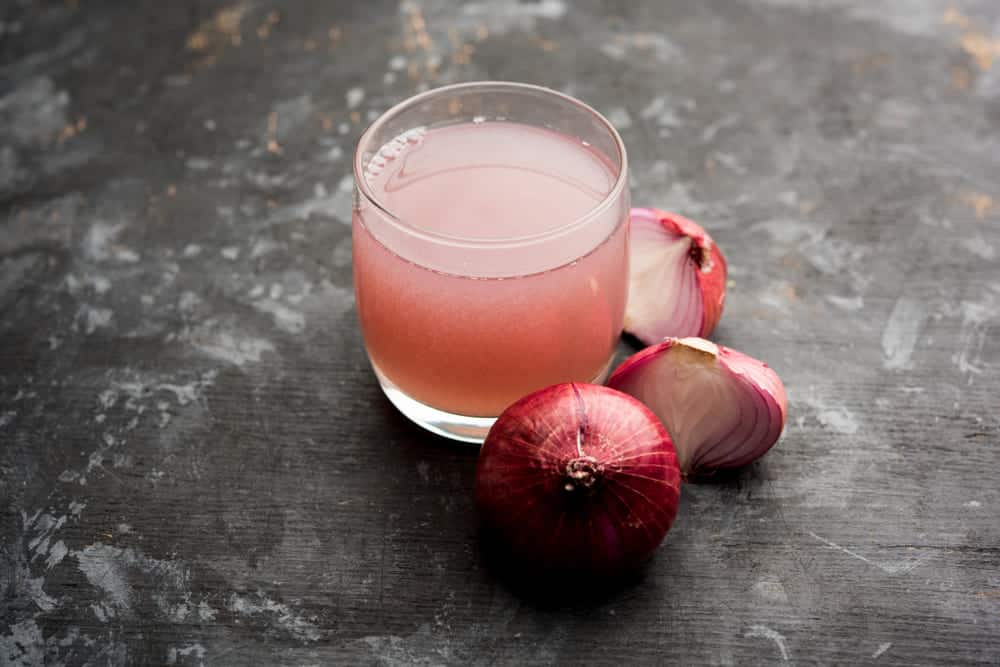
Onions might be vital for most Mexican and almost all dishes in the subcontinent; onion juice, however, is rarely used. The recipes that require onion juice are very flavourful and specific about onion juice quantity for the right flavor.
The thing with onion juice is that you cannot store it for long. It tends to get bitter when left in the refrigerator for more extended periods. There’s no specific way of prolonging the shelf life of onion juice. However, you can always freeze it in small batches or ice cubes and defrost it whenever you need it. But be careful; onion juice has a strong, pungent smell that easily stays for a longer duration in the refrigerator. So, you better get some airtight containers if that’s what you plan on doing.
Onions are readily available throughout the year, but if for some reason you can’t get your hands on them. And you don’t want to put yourself through the torture of grating some onions, we’ve compiled a list of alternate ingredients you can add to your recipe.
Substitute For Onion Juice
1) Preserved Onion Juice
If you can’t find fresh onion juice, look for a bottle of preserved onion juice. You can easily use it in any recipe. Just make sure the bottle isn’t expired before you open the seal. Instead of directly adding the onion juice to your recipe, add the desired amount in a bowl and mix it with some water if you feel the taste too strong.
2) Dried Onion Flakes
A lot of people dry onion flakes for their recipes. Most Indian dishes require a little seasoning with onions, and so do a lot of other cuisines. Dried onion flakes can directly be added to the recipe; however, if you want a rich flavor, grind the bits and boil them in a bit of water, which would give the onion flavor you’d be looking for.
However, sometimes, dried onions give a slightly dark color to the recipe you’re cooking, so make sure you don’t use too much.
3) Onion Powder
Onion powder is readily available at all supermarkets. If you can’t get your hands on onion juice, you can add a little powder to the recipe you’re cooking. But make sure you don’t add too much; most onion powders are slightly salty and ruin the flavor of the dish you’re cooking. Like dried onion flakes, it is also recommended that you add a little onion powder to some water, dilute it before cooking it.
4) Garlic
Garlic gives off a robust flavor almost similar to onions, especially if you’re cooking chicken. It is a preferable choice of most expert cooks to use garlic as a substitute for onion juice. The Garlic aroma, when cooked, gives a rich flavor and makes the recipe seem complete.
If you don’t want to use whole garlic cloves, you can always grate them and use their juice. That would be a preferable choice, especially for a curry.
5) Carrots
Carrots might seem like vegetables that need proper cooking; they can add the perfect flavor to any dish. If you can’t get some onion juice, use a little carrot juice or boiled carrots to a fulling taste of the recipe.
6) Tomatoes
Tomatoes are the ideal filler for any dish; in case of an onion deficiency, adding a few tomatoes is a wise decision. Not only will it give a favorable taste, but it will also cover up for the lack of onions in the recipe you’re cooking. However, be careful not to add too many tomatoes; otherwise, it might sweeten up the taste.
7) Black Salt
Unlike white salt, black salt has a very particular taste. It is ideal for adding a different flavor to your recipe. If you feel like experimenting a little, adding a pinch or two of black salt might savor up the taste. But if you’re looking for an authentic taste, adding too much black salt might not be advisable.
If you can’t use onion juice, you can always use substitutes like onion flakes, onion powder, garlic, tomatoes, carrots, and even black salt. But if you want no change in the taste, go for onion flakes or powders for a more original flavor. Although, there is nothing that can substitute the original ingredient, these substitutes work equally well.